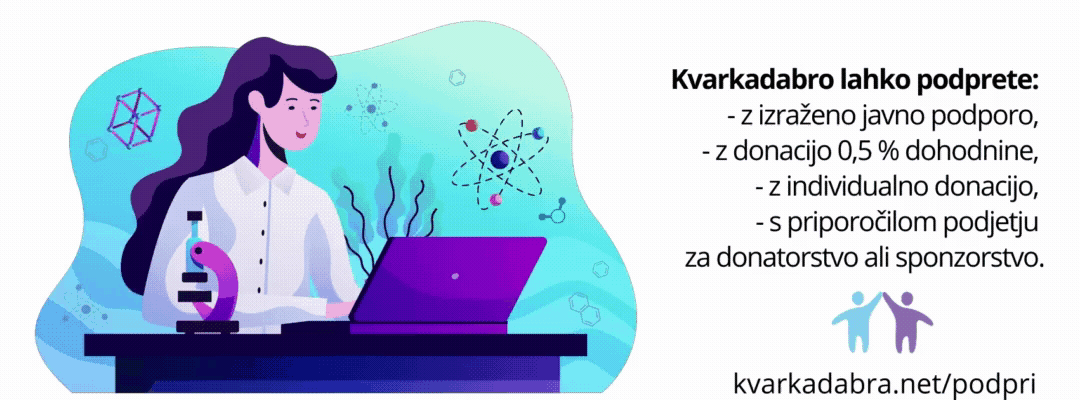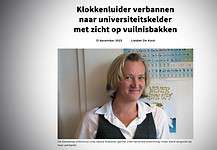Mlada profesorica je zbirala nekaj nenapisanih pravil delovanja v akademski znanosti na različnih stopnjah kariere.
Nenapisana pravila akademske znanosti poudarjajo pomen prilagajanja zapletenim in pogosto implicitnim pravilom in pričakovanjem v akademski sferi za uspeh v znanstveni karieri.
- Objave kot valuta: Znanstvene objave so ključne za pridobivanje sredstev in zaposlitev.
- Izbira laboratorija: Pridružite se laboratorijem, ki redno objavljajo članke za vsakega mladega člana.
- Komunikacija brez emocij: Še posebej za ženske je pomembno komunicirati brez čustev.
- Predavanja kot intervjuji: Vsako predavanje obravnavajte kot priložnost za karierni napredek.
- Podporna mreža: Ljudje, ki prejmejo nagrade, imajo podporne mreže, ki jih usmerjajo k priložnostim.
- Sposobnost reči “ne”: Redko vam bodo rekli, naj nečesa ne storite; sami morate uravnotežiti svoje obveznosti.
- Konkurenca v akademiji: Akademija je kot atletika, kjer je vse tekmovalno, a uspeh ni vedno odvisen samo od trdega dela.
- Praksa pisanja: Nihče ni odličen znanstveni pisec brez vaje.
- Financiranje: Pridobivanje ustreznega financiranja je ključno, saj je akademija enako finančno usmerjena kot korporativni svet.
- Akademska svoboda in financiranje: Imate svobodo raziskovanja, a financerji imajo svobodo ne financirati; prepričati jih morate o vrednosti vaših idej.
- Odpornost: Kritike ne jemljite osebno; znanost temelji na kritiki in iskanju novih raziskovalnih tem.
- Samopromocija: Prodajajte svoje dosežke in ne delajte neumnosti v javnosti; potrebujete ljudi, ki vas podpirajo za zaposlitev in štipendije.
- Izvajanje nalog: Raziskujte, pišite, udeležujte se konferenc in se mrežite. Delajte trdo in pametno ter znajte reči “ne”.
- Odnosi s sodelavci: Podporno in administrativno osebje ima velik vpliv, zato z njim dobro ravnajte.
- Resničnost akademskih obremenitev: Realnost pogosto presega formalno razporeditev obveznosti na raziskave, poučevanje, administracijo.
- Izbira disertacijske komisije: Pred izbiro komisije preučite zavezništva in konflikte med fakultetnim osebjem; izogibajte se več kot enemu dominantnemu članu v komisiji.
- Priporočilna pisma: Pisma, ki ne vključujejo osebnih interakcij, so manj vredna; študentje naj vzpostavijo osebne stike s profesorji.
- Branje akademskih del: Mnogi berejo samo uvode, zaključke in recenzije knjig, a se pretvarjajo, da so prebrali celotno delo; najti morate ravnovesje med ugajanjem mentorju in ponujanjem nečesa novega.
- Debela koža: Razvijte odpornost proti nepredvidljivim negativnim reakcijam; ta lastnost je ključna za preživetje v akademskem okolju.
What are some unwritten rules you learned during each stage of your academic career?
- Publications are the currency for getting funding and jobs.
- Join labs that have a history of publishing a paper for each trainee.
- You must learn to communicate without emotion, particularly as a woman.
- Treat any talk like a job interview – the person who can open the next door in your career path may be in the room.
- People who win awards aren’t simply good – they have (or build) support networks to point them to opportunities and nominate them for things.
- Rarely people will say “don’t do this, you have too much on your plate” – it is up to you to say no and explain your workload and priorities.
- Academia is like athletics (for better or worse) – everything is a competition. No matter how hard you work, someone is working harder. But the way you “win” is not always by working hard. The unwritten rules give some people a big leg up.
- Nobody is an accomplished scientific writer without practice.
- Academia is about money as much as corporate America. Always put yourself in position to get adequate funding or else research will not in your cards.
- You have academic freedom to research whatever topic your heart desires. Just be aware funding agencies also have freedom not to fund it. So either convince people your idea is good or dance to their tune.
- Resiliency is absolutely required in this industry. Do not take harsh brutal criticism personally. Science is about criticizing others’ work and finding new research topics. The person giving it may actually be an ally. The rule is different from Hollywood and the media where public criticism may be a sign of ill-will.
- Sell yourself and do not do silly things publicly. Many decisions are done behind your back. And you need people to fight for you behind your back to get jobs, grants and other things. That is hard if they lack material to go on or everyone in the room thinks you are a fruitcake. Have fun during social events at conferences or in your department, but absolutely do not make a fool of yourself (aka drinking too much).
- Get stuff done. Research. Write. A lot. Go to conferences, network. Market yourself. Early in my career I almost always said yes. Teach the classes. Work twice as hard as you think you need to. Don’t leave any question to your contributions to research, teaching and service. BUT: The unwritten part of these is that at some point there are limited returns on how hard you work. The trick that I didn’t know until later is how to work smart as well as hard. It’s ok to say no to “opportunities”. They’ll always be more. It’s also a hard skill to learn and one your mentor/supervisor probably hasn’t learnt yet either!
- Staff in your department have lots of influence; treat them well.
- Written: “Research 60%, Teaching 30%, Admin 10%” Reality: “Research 100%, Teaching 60%, Admin 120%”
- Look into alliances and conflicts between faculty before choosing your dissertation committee. When forming your dissertation committee, there should be only one prima donna and they should be the chair – this helps to avoid committee fights later down the road. Saw many student’s degree completion needlessly dragged out or derailed when faculty would fight out personal grudges through student’s work.
- A letter that says DWIC “did well in class” is basically worthless. There needs to be something about personal interaction for letters of rec coming out of undergrad. Students need to attend office hours, ask questions in class, make sure the professor knows them, before asking for a letter.
- A lot of people just read the intro, conclusion, and the book review, but pretend to read the whole thing. Getting ahead is a delicate balance between pleasing your advisor but also offering something different.
- Develop a thick skin. You never know who might lash out for unknown reasons. It might happen during a calm period, or it might not. A thick skin will protect during both, but more so the latter, in case other time-dependent and pressing tasks require bandwidth to function.
















